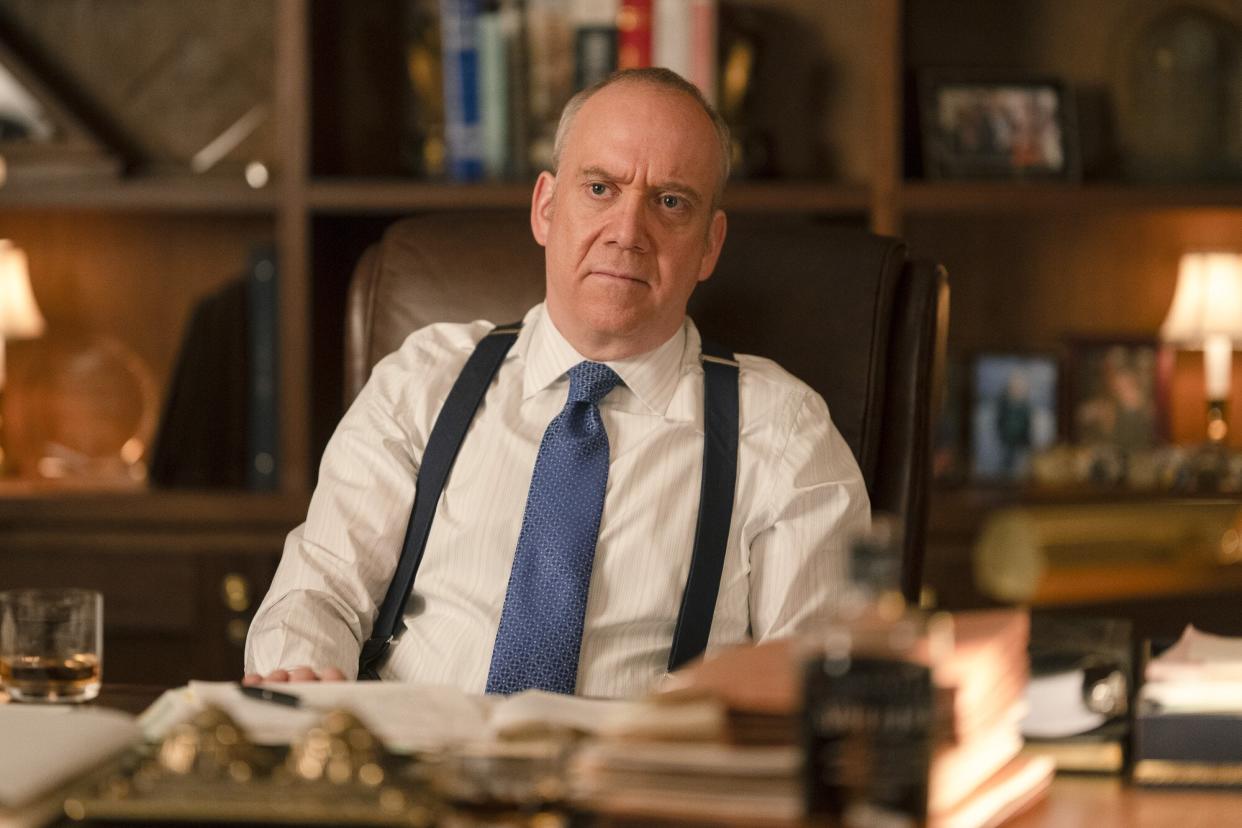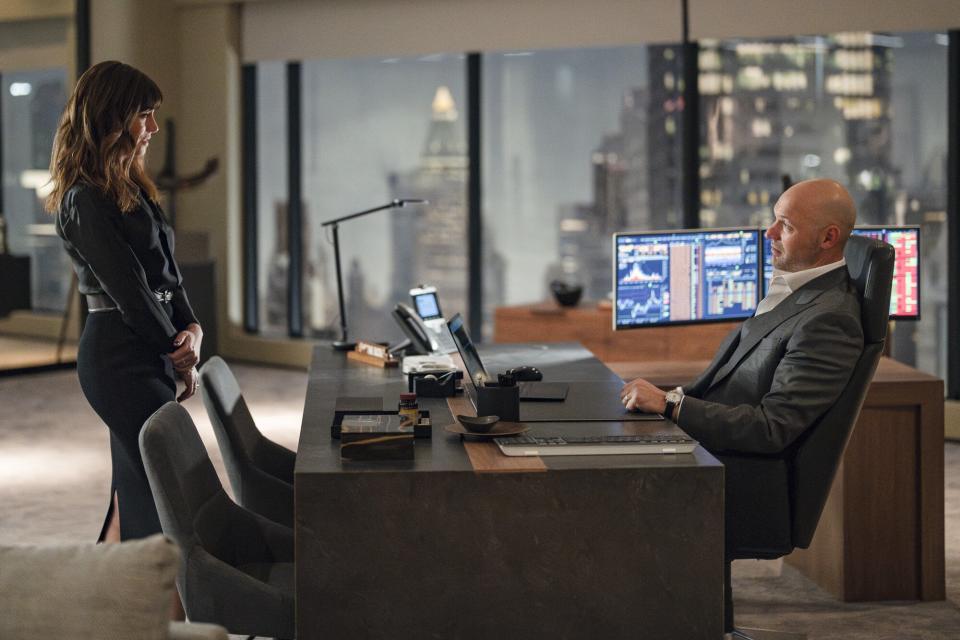Billions recap: Chuck and Prince's old rivalry re-emerges

- Oops!Something went wrong.Please try again later.
Christopher T. Saunders/SHOWTIME Paul Giamatti
In a lot of ways, this week's episode of Billions sees a number of characters finding themselves again. With the landscapes at Michael Prince Capital and within the government shifting, some characters are questioning themselves and their purpose. I've commented previously that so far this season, the idea of Prince being a threat to American democracy has been a severely undercooked premise. This week's episode only underscores that because it's so laser-focused on laying out character motivations and making them work for the larger story.
The episode begins in a bar, where a bunch of rich Wall Street guys are celebrating the anniversary of Michael Lewis' landmark book Liar's Poker, which details his time as a bond broker in the 1980s. It's another instance of Billions feeling like it's just shoehorning in guest appearances, but at least it works in setting up Wags' arc for this episode.
Essentially, when Wags (David Costabile) begins chatting with some old pals and tries to pitch them on bringing some money to Michael Prince Capital, he's treated like a has-been, like a relic of the past. His reputation is no longer what it once was, and everyone believes the old, ruthless Wags is now just a docile servant of a politician.

Christopher T. Saunders/SHOWTIME Maggie Siff as Wendy Rhoades and Corey Stoll as Michael "Mike" Prince
For awhile, Wags wallows in that feeling. He starts to wonder if his time has really come and gone. Then Wendy (Maggie Siff) meets up with him, in a similar funk since finding out that most of the office sees an outside therapist when they want to talk about topics not related to work. They share some whiskey and muse on their feelings of inadequacy before building each other up, promising to work back to being their old, confident selves.
For Wags, that means reaming out Winston (Will Roland), who has quit Michael Prince Capital and attempted to pitch his own risk management software to Prince's competitors. Obviously, Winston built his system on Prince's company time and tested it at the office, so naturally Wags wants to shut him down. The whole plot is wonderful, from Winston's epically tedious and uncaring "going away" party, to the scene where Wags lets loose on him at his apartment, planting a bug that eventually allows Wags and the team to track who Winston plans on pitching and ruin his chances.
Wendy's arc is a little different. She ends up seeking out this therapist, Dr. Mayer, and confronting her about "stealing" her patients. Her plan is to come to an agreement with Mayer and suggest that they can work in collaboration to help the employees of Michael Prince Capital, but Mayer has no interest. She says Wendy is a great therapist of course, and clearly skilled, but that the way she's using her skills is in service of something less than honorable. No amount of dollars earned by her patients is proof that what she does is "good"; or, as Mayer puts it, it doesn't matter how big the hamster wheel gets, Wendy is still keeping them on that hamster wheel. So, Wendy's identity crisis is still ongoing, as she ends up coming to Mayer for her own therapy by the end of the episode.
Elsewhere, Chuck (Paul Giamatti) is back in his old post as US Attorney at the Southern District of New York, and he's brought Ira (Ben Shenkman) along with him. While the setting is familiar, there's a new problem that Ira identifies: Chuck is scared. He wants to make a big splash with his first case, and because of that he's turning down every case pitched to him. He's afraid to pull the trigger and fail. In theory, it's a pretty good storyline and one that makes sense of Chuck, but the way it plays out is a little overwrought, even for Billions. From the Kareem Abdul-Jabbar cameo to the repetitive conversations, none of it really feels that urgent or propulsive.
Still, this is the best episode of the season so far because it does have quite a few entertaining scenes, and a lot of focus on character motivations. Here's hoping the rest of the season can build from this.
Sign up for Entertainment Weekly's free daily newsletter to get breaking TV news, exclusive first looks, recaps, reviews, interviews with your favorite stars, and more.
Related content:

